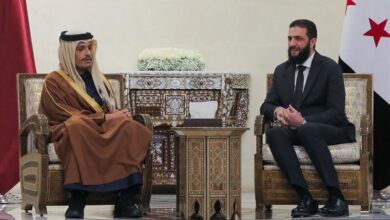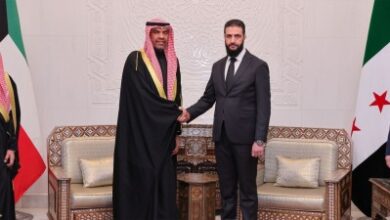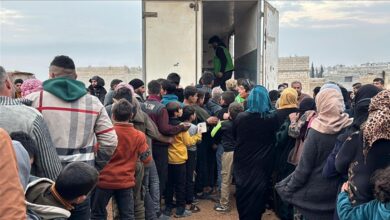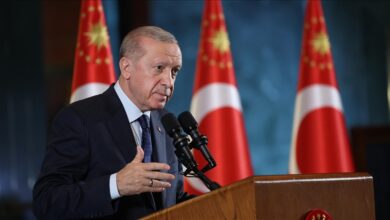
Turkey: Closure of Bab al-Hawa crossing will threaten the lives of 4 million people in northern Syria
Turkey’s permanent representative to the United Nations, Feridun Sinirlioglu, said: “The closure of the Bab al-Hawa crossing between Turkey and Syria is a step that will threaten the lives of 4 million people in northwestern Syria, who live on UN aid.”
This came during his speech during a session of the Security Council, yesterday, Wednesday, on the need to listen to the warning against the failure to extend the United Nations humanitarian assistance mechanism across the border in Syria.
Sinirlioglu added, “The failure to extend humanitarian access to Syria would be extremely harmful to the people of the region there,” noting that “the circumstances that prompted the UN Security Council to allow cross-border humanitarian aid operations since 2014 should not be forgotten.”
He stressed that the UN Security Council’s cross-border mechanism against the Assad regime, which “brutally” killed its people and targeted vital humanitarian infrastructure, came to deliver humanitarian aid that secured a safe life for the displaced in Syria.
Sinirlioglu explained: “Bashar al-Assad and his supporters committed war crimes against the Syrian people, and millions of people in the liberated north of Syria are still facing collective punishment.”
He pointed out that civilians in northern Syria are struggling in an active war zone, hoping that the aid provided by the United Nations will continue to arrive through the Bab al-Hawa crossing between Syria and Turkey.
Sinirlioglu warned that the Assad regime and the Syrian Democratic Forces will continue to “commit systematic violations against civilians,” noting that “stopping the mechanism of aid entry into Syria through Bab al-Hawa will allow these forces to multiply their killings in the region.”
Regarding the Corona virus, Turkey’s permanent representative to the United Nations said: “The closure of the crossings will prevent civilians in northern Syria from receiving anti-Coronavirus vaccines, and the United Nations organizations will not be able to be present inside Syria.”
The Russian Foreign Minister had alluded to his country’s government’s refusal to extend the authorization for the entry of humanitarian aid to Syrians across the border with Turkey, stressing that Moscow does not agree with the United Nations and Western countries about the lack of an alternative to delivering humanitarian aid to northwestern Syria, except through Turkey.




